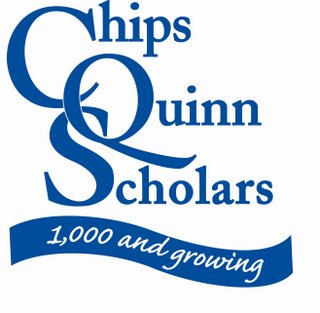 Photo by Bob Siddens
Photo by Bob Siddens The Summer 2007 class of Chips Quinn Scholars gathered at the Diversity Institute in Nashville, Tenn.
 Photo by Bob Siddens
Photo by Bob Siddens The Summer 2007 class of Chips Quinn Scholars gathered at the Diversity Institute in Nashville, Tenn.
 Too often in newsrooms, editors and even reporters view people of color as representative of their entire community. I had a conversation with Chandra Thomas, (shown at left) staff reporter of Atlanta magazine, in which she told me about the pressure of covering Atlanta's black community as the only African-American person on staff. She struggles with covering such a varied community by herself. Even when other staff members help, she said she still feels a responsibility to be an advocate and a representative.
Too often in newsrooms, editors and even reporters view people of color as representative of their entire community. I had a conversation with Chandra Thomas, (shown at left) staff reporter of Atlanta magazine, in which she told me about the pressure of covering Atlanta's black community as the only African-American person on staff. She struggles with covering such a varied community by herself. Even when other staff members help, she said she still feels a responsibility to be an advocate and a representative. The New York Times? Check!
The New York Times? Check! Photo by Colleen Cummins
Photo by Colleen Cummins Photo by Daniel Sato
Photo by Daniel Sato Photo by Daniel Sato
Photo by Daniel Sato Alum Adam Causey of The Times in Shreveport, La., picks himself out of the photo of the CQ class of 2006
Alum Adam Causey of The Times in Shreveport, La., picks himself out of the photo of the CQ class of 2006

 Photo by Sarah Welliver
Photo by Sarah Welliver Photo by Bob Siddens
Photo by Bob Siddens John Quinn and Martin Reynolds
John Quinn and Martin Reynolds Enjoying the opening-night reception (from left): James Wagner, Betsy Martinez, Jennifer Muhmel, Stu Woo and Nicole Dungca.
Enjoying the opening-night reception (from left): James Wagner, Betsy Martinez, Jennifer Muhmel, Stu Woo and Nicole Dungca.